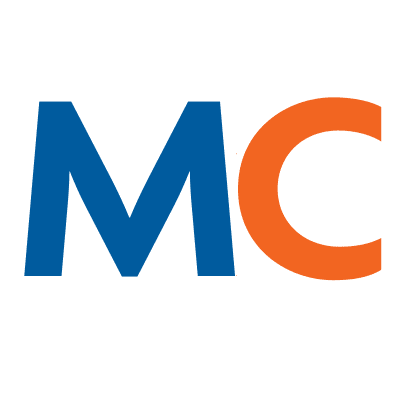- Solutions
- Solutions
- Home Health
- Hospice
- Life Plan Community
- Palliative Care
- Private Duty
- Senior Living
- Skilled Nursing
- Skilled Nursing
- Skilled Nursing Software
- Advanced Insights
- Customer relationship management
- Data and analytics
- Financial & operations management
- Marketing
- Nutrition management
- Referral management
- Regulatory compliance
- Retail management
- Resident engagement
- Revenue cycle management
- Skilled nursing interoperability
- Partners
- Blogs
- Resources
- About
- User Conference

Developing ongoing training and education for EHR success
The Covid-19 pandemic shattered the barriers preventing long-term care providers from achieving EHR success. It also accelerated healthcare IT adoption as more providers invest in electronic health record (EHR) platforms. There are countless benefits to using EHR systems—including improving patient care and coordination of care, identifying efficiencies in care that lead to cost savings, more positive patient outcomes, reduced readmissions to hospitals, and increases in patient participation in care programs.
According to an August 2021 survey from Google Cloud, 45% of respondents reported that the COVID-19 pandemic accelerated healthcare IT adoption at their organizations. Furthermore, 62% of physicians said COVID-19 forced their organizations to upgrade their technology networks—something that would have otherwise taken years; 86% indicated increased data operability would reduce the time it takes to diagnose patients; 95% were confident healthcare IT would improve patient outcomes; 61% suggested that access to better tech would reduce administrative burdens, and 57% believe EHR and healthcare IT would reduce physician burnout.
For most organizations, getting an EHR platform up and running is the easy part. Once all stakeholders are comfortable with using the software network, ongoing training and education is essential for continued success and better health outcomes for patients and residents, especially with frequent changes to interoperability rules and regulations, software updates, and adding new users to the platform.
At MatrixCare, we’ve developed some essential steps toward developing ongoing training and education for EHR success, from leveraging tools and resources to identifying key metrics and letting “superusers” lead the way for their colleagues and peers.
Step 1: Give superusers the tools to lead
Organizations should identify “superusers”— employees who excel at using the software and are adept at teaching others—as primary stakeholders of a software implementation. These are the key leaders across various departments who have influence over other leaders, to ensure that everyone is collaborating and on the same page.
The agency granted to superusers continues throughout an organization’s relationship with an EHR platform. As stakeholders, they are essential in change management, ensuring that all impacted staff are aware of upcoming changes to software platforms, and are key in the ongoing governance plan.
One way to develop ongoing training on EHR platforms is to form a mentorship program. For example, experienced CNAs who are highly experienced on EHR platforms can take new hires under their wings and help them acclimate to the intricacies of a system, as they are onboarding.
At MatrixCare, we want our customers to build that team of superusers and identify members who accept change, and who also want to help others.
Step 2: Leveraging tools and resources
Even without a superuser team established, organizations can form an ongoing EHR training program if a platform is already implemented and in use.
What is important here are all of the tools that the vendor is going to provide, to ensure that there are online training opportunities, exceptional documentation, and staying up to date on regulatory and software updates as the industry changes. This also lays the foundation for organizations to build their superuser teams as new stakeholders are hired and identified.
At MatrixCare, we provide webinars and release documentation for every product change, so superusers can spread their knowledge within their organizations and modify their workflow process, as needed.
Step 3: Identifying key performance indicators (KPIs)
At MatrixCare, we work with our customers to achieve results based on their existing key performance indicators. Whether it is clinical outcomes or revenue reimbursement, we’ll work with them to understand their KPIs and create scorecards with their input as they go through the implementation process.
We also work with our customers from a back-end database perspective on changes that are coming to software platforms, and can train and consult with them on how to continue tracking those KPIs on their own.
We do four major releases a year at MatrixCare, which we use as opportunities to highlight notable changes in each release. We also work with our customers to measure how many things they have been able to adapt and educate within their organizations.
Our customer success managers engage customers on a daily basis, especially as we are rolling out new changes to the software. We also offer self-guided portals that provide further engagement for them, to get real-time feedback so they don’t always have to interact with someone. These portals have all of our education materials and support information, any time of the day. If they want to find something on their own, they’re able to go out to that tool and gather it.
All vendors should have the necessary tools to help their customers, and these steps are key to the ongoing success of an EHR adoption from a training and education perspective.
Request a demo today for a closer look at MatrixCare.
See what MatrixCare can do for you
Kim Broyer
Kim Broyer is the Vice President of Professional Services at MatrixCare. She has almost 20 years of experience in long-term care and holds a Bachelor's degree in Healthcare Administration from the University of Wisconsin - Eau Claire. She has been in various roles at MatrixCare since January 2003 including Training Consultant, Product Manager/Business Analyst and current role for 6 years leading up Project Management and Training services for our customers. Broyer's team helps to ensure new clients are implementing MatrixCare successfully and existing clients continue to adopt new product features through project management, eLearning, ongoing training webinars and #Engage regional user groups.
Related Posts



See MatrixCare in action
Start by having a call with one of our experts to see our platform in action.
MatrixCare offers industry-leading software solutions. Thousands of facility-based and home-based care organizations trust us to help them improve efficiency and provide exceptional care.





